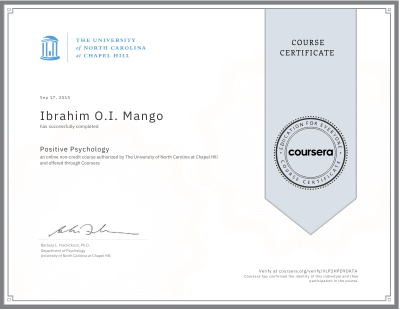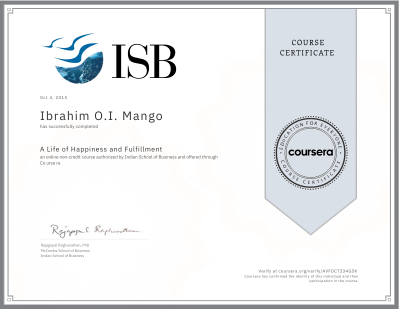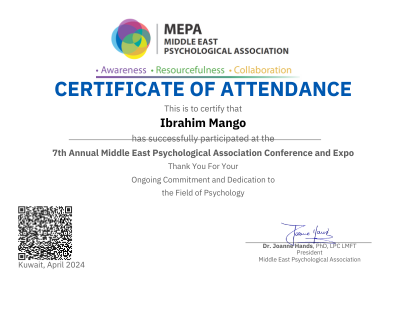In a world dominated by social media and high professional expectations, many people fall into the trap of believing that perfection is the key to success. This notion can be particularly damaging for professionals navigating careers that require social confidence, such as executives, entrepreneurs, and managers. The pressure to present oneself flawlessly often leads to self-doubt and anxiety, ultimately hindering personal growth and genuine connection with others. But here’s a liberating truth: confidence isn’t about being perfect; it’s about embracing your authentic self, flaws and all.
In this blog, we’ll explore the myth of perfectionism, its impact on social confidence, and practical steps you can take to cultivate authentic confidence by letting go of unrealistic expectations.
The Myth of Perfectionism in Professional Life
Many individuals mistakenly equate perfectionism with success. They believe that achieving flawless results will garner admiration and respect. However, perfectionism often breeds anxiety and impedes performance rather than enhancing it.
Imagine a project manager preparing for a significant presentation. They may spend countless hours obsessing over every detail, ensuring that every slide is immaculate and every statistic is perfect. This intense focus on perfection can lead to delays, stress, and a fear of judgment. Instead of delivering the presentation with confidence, they might feel overwhelmed and insecure, fixating on potential flaws instead of showcasing their hard work.
Moreover, perfectionism can lead to analysis paralysis, where decision-making becomes paralyzed due to fear of making the wrong choice. When professionals are caught in this cycle, they may avoid taking risks altogether, missing out on valuable opportunities for growth and connection.
How Perfectionism Undermines Social Confidence
Perfectionism doesn’t only affect professional endeavors; it also seeps into our social interactions. The fear of being judged or criticized can make it challenging for perfectionists to engage in meaningful conversations. When you’re overly concerned with how others perceive you, it becomes nearly impossible to connect authentically.
For instance, consider someone attending a networking event. Instead of actively engaging in conversations, they might remain quiet, worried about saying the wrong thing or making a poor impression. This avoidance only reinforces feelings of inadequacy and can create a vicious cycle, leading to missed opportunities to build valuable relationships.
Additionally, perfectionists may set unrealistic expectations for their interactions. They might believe they need to be charming, witty, and knowledgeable at all times. When they inevitably fall short of these expectations, it reinforces negative beliefs about their social abilities and reduces their willingness to engage in future interactions.
How to Build Confidence by Letting Go of Perfection
If you’re ready to break free from the confines of perfectionism, it’s time to adopt a more empowering mindset. Here are some concrete actionable steps to help you:
1. Redefine What Confidence Means:
Confidence should not be conflated with perfection. Instead, it’s about being self-assured in your abilities while being open to learning and growth. Accept the idea that confidence is rooted in resilience and authenticity rather than flawlessness.
Reflect on a moment when you felt genuinely confident. Write down the qualities you exhibited during that time. Were you curious, willing to learn, or open to feedback? Acknowledge that these traits contribute to your confidence, not the absence of mistakes.
Imagine you successfully led a team project that faced challenges. Instead of fixating on the minor errors made along the way, focus on how you navigated the difficulties, learned from the experience, and ultimately delivered a successful outcome.
2. Adopt Mistakes as Learning Opportunities:
Mistakes are a natural part of any growth journey. Instead of viewing them as failures, consider them stepping stones toward improvement. This shift in mindset will allow you to approach challenges with greater confidence.
The next time you make a mistake, take a moment to analyze what went wrong and identify the lessons learned. Write down three insights from the experience and how you can apply this knowledge in the future.
If you miscommunicate during a presentation, instead of dwelling on the error, reflect on what caused the misunderstanding. Did you overlook a key point? Consider how you can improve your communication in the future to avoid similar situations.
3. Practice Self-Compassion Over Self-Criticism:
Self-criticism can erode your confidence, while self-compassion fosters resilience and understanding. Treat yourself with the same kindness you would offer a friend when facing challenges or making mistakes.
When you catch yourself engaging in negative self-talk, pause and reframe your thoughts. For instance, instead of saying, “I can’t believe I messed that up,” try thinking, “It’s okay to make mistakes; I can learn from this experience.” Write down affirmations that reinforce your worth and repeat them daily.
After a challenging meeting where you felt you didn’t perform well, instead of beating yourself up, remind yourself that everyone has off days. Write down an affirmation like, “I am capable of growth, and every experience helps me become a better professional.”
4. Prioritize Progress Over Perfection:
Focusing on progress rather than perfection helps shift your mindset from the unattainable pursuit of flawlessness to achievable growth. Celebrate your efforts, no matter how small, and recognize that every step forward is valuable.
Set a weekly goal that emphasizes progress. For example, if you’re working on improving your public speaking skills, aim to complete a rough draft of a speech instead of striving for a perfect final version. Celebrate this achievement, regardless of the outcome.
If your goal is to enhance your networking skills, set a target of initiating three conversations at your next event. Whether they go perfectly or not, acknowledge the effort and the experience gained from stepping out of your comfort zone.
5. Take Risks and Get Out of Your Comfort Zone:
Confidence flourishes outside of your comfort zone. Taking risks allows you to confront your fears and realize that making mistakes doesn’t equate to failure. Embrace the discomfort as a natural part of growth.
Identify one area in your life where perfectionism holds you back, such as speaking up in meetings or attending social gatherings. Commit to taking a small risk in this area, like contributing one idea in your next meeting or initiating a conversation at a networking event.
If you’re anxious about networking, challenge yourself to introduce yourself to at least one new person at an event. Focus on the experience rather than worrying about making the perfect impression.
6. Shift Focus From External Validation to Internal Fulfillment:
Relying on others’ opinions for your self-worth can create a fragile sense of confidence. Instead, cultivate a strong internal sense of fulfillment by aligning your actions with your values and passions.
Write down your core values and how they align with your actions. For instance, if one of your values is “growth,” identify activities that challenge you and promote that value, such as attending workshops or seeking feedback from peers. Engage in these activities for your fulfillment, not just for approval.
If you value creativity, seek opportunities to express this value through projects or hobbies that excite you. Engage in these activities not for recognition but for the joy and satisfaction they bring.
Conclusion
Confidence comes from recognizing your worth and honoring the unique path you're on. When you let go of the need for perfection, you open the door to genuine confidence and deeper connections. True confidence is built on self-acceptance, resilience, and the understanding that mistakes are stepping stones on your journey.
By shifting your focus to progress over perfection, practicing self-compassion, and allowing yourself to learn from your mistakes, you’ll tap into a more authentic version of yourself.
Now is the time to take action: commit to practicing one small step toward self-acceptance today, whether it's speaking kindly to yourself, letting go of a mistake, or celebrating a personal win. Confidence begins with the actions you take to recognize who you truly are.
FAQs
1. How can I differentiate between striving for excellence and perfectionism?
Striving for excellence involves setting high standards and working hard to achieve them while remaining open to learning and growth. In contrast, perfectionism is an obsessive focus on flawlessness, often accompanied by fear of failure. The key is to prioritize progress and learning over the relentless pursuit of being perfect.
2. What role does feedback play in building confidence?
Constructive feedback is essential for building confidence as it provides insights into your strengths and areas for improvement. Taking on feedback as a valuable tool rather than criticism allows you to grow and develop, reinforcing the idea that mistakes are opportunities for learning.
3. Can mindfulness practices help in overcoming perfectionism?
Yes, mindfulness practices can be highly effective in overcoming perfectionism. By cultivating awareness of your thoughts and feelings, you can recognize when perfectionistic tendencies arise and respond with self-compassion and acceptance. Mindfulness helps you stay grounded in the present moment, reducing anxiety about future outcomes.










